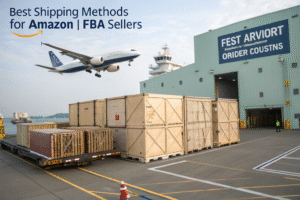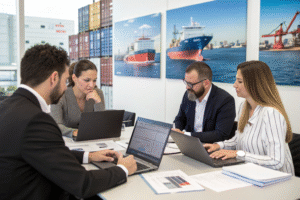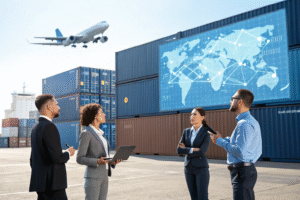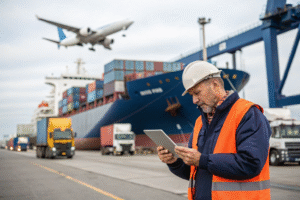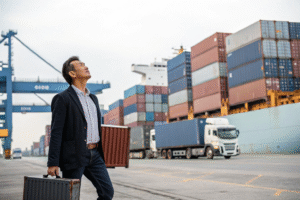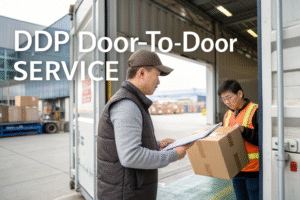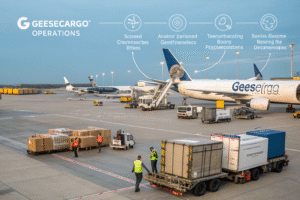Speed is everything in air freight logistics. For businesses shipping from China to the U.S., every day gained in customs clearance can mean hitting sales windows, reducing storage fees, or meeting client deadlines. Yet, many still rely on traditional clearance models, unaware of alternatives like pre-clearance that can drastically reduce delays.
Pre-clearance allows Chinese exports to pass U.S. customs before landing—cutting total air freight time by up to 72 hours.
While not yet standard across all airports, this process is gaining traction with major freight hubs and trusted logistics partners. The key question becomes: when is it worth using, and how does it compare with traditional clearance?
As a freight forwarder with years of experience handling both systems for U.S.-bound shipments, I’ll explain the pros, cons, and hidden variables so you can make the right choice for your supply chain.
What Is Pre-Clearance and How Does It Work?

Is Pre-Clearance Like Early Customs Approval?
Yes, but with real legal implications. Pre-clearance is a system where U.S. Customs and Border Protection (CBP) works in advance—often while the cargo is still in China—to verify all documentation, HS codes, and compliance. This allows for immediate cargo release upon arrival.
It relies heavily on Electronic Data Interchange (EDI) and close cooperation with approved forwarders. In many cases, pre-clearance happens at origin airports like Shanghai Pudong or Shenzhen Bao’an before the flight takes off.
For CBP’s pre-clearance initiatives, see their official explanation and air cargo procedures via IATA guidelines.
How Common Is Pre-Clearance at Chinese Airports?
Still evolving, but growing rapidly. Airports like Shanghai, Guangzhou, and Hong Kong already support various advance customs inspection protocols, especially for high-frequency exporters with stable product categories. Goods such as clothing, accessories, and promotional gifts benefit the most due to predictable classification.
GeeseCargo has partnerships with pre-clearance-enabled terminals and bonded warehouses to support faster loading workflows.
You can track facility programs via China Customs website or through freight hubs like Cainiao Smart Logistics.
What Are the Drawbacks of Traditional U.S. Customs Clearance?

Why Does Traditional Clearance Take So Long?
Traditional customs clearance happens after the cargo has landed at a U.S. airport. For many importers, this means:
- Waiting for customs officers to inspect documents manually
- Unpacking for X-ray or manual inspections
- Additional charges for demurrage or storage
- Delays due to weekend arrivals or holiday staffing
These delays can range from 24 to 96 hours, depending on the volume, airport congestion, and document accuracy.
According to Global Trade Magazine, LAX and JFK report the highest clearance backlogs during seasonal peaks.
Are There Hidden Fees with Traditional Clearance?
Absolutely. U.S. ports often charge:
- Handling fees for detained air pallets
- Overtime inspection fees for weekend checks
- Storage charges after free time expires (usually 48 hours)
These costs, while individually small, can easily add up to hundreds of dollars per shipment. Forwarders like us help clients avoid them through pre-arrival planning.
Learn more via CBP’s air cargo guidelines and Freightos air freight tips.
Which Option Saves More Time in Real-World Scenarios?

How Much Time Can Pre-Clearance Save?
On average, 36 to 72 hours—depending on airport efficiency. Here’s a simplified breakdown:
| Process Step | Traditional | Pre-Clearance |
|---|---|---|
| Document Review | 24 hrs | 0 hrs (done before) |
| Inspection Scheduling | 12–24 hrs | 0 hrs |
| Final Release | 24 hrs | Immediate |
| Total | ~60 hrs | <10 hrs |
Pre-cleared cargo can clear within 2 hours of landing, especially when processed at automated terminals with bonded express lanes.
Explore sample transit times at WorldACD’s dashboard or cargo.one’s analytics.
Are There Any Exceptions Where Traditional Might Be Better?
Yes. For small-batch or first-time shippers, traditional clearance might be simpler if they lack verified export records. Some high-risk goods—like batteries or chemicals—still require physical inspection regardless of documentation.
Also, not all U.S. destinations offer fast-track exit procedures. Airports like ATL or SEA might still process traditionally.
Contact CBP local offices or your GeeseCargo representative to check eligibility.
How Do Freight Forwarders Help Speed This Up?

Can Forwarders Automate Pre-Clearance?
Yes, but only the qualified ones. At GeeseCargo, we use:
- Automated manifest submission
- Pre-arrival EDI with CBP
- Integrated labeling and HS code databases
- Bonded lane scheduling
This allows us to pre-clear most apparel and accessory shipments before departure. Our system is synced with terminals at PVG, CAN, and HKG.
Read more about digital customs automation at Descartes Systems or TradeLens customs APIs.
What Happens If Something Goes Wrong?
That’s where human oversight matters. We monitor each flight’s customs status in real time. If a red flag appears, we can intervene—submitting updated invoices or clarifications before landing. This hybrid model of automation plus manual control makes sure nothing gets stuck unnecessarily.
GeeseCargo clients can also access shipment dashboards powered by Project44 visibility tools.
Conclusion
Pre-clearance is the future of air freight customs for Chinese exports. It offers faster turnaround, fewer delays, and greater transparency. While not perfect for every shipper or product type, it’s a powerful tool in the hands of experienced forwarders. At GeeseCargo, we help our clients navigate these choices daily—so your cargo gets cleared and delivered before your competition even gets wheels down.

